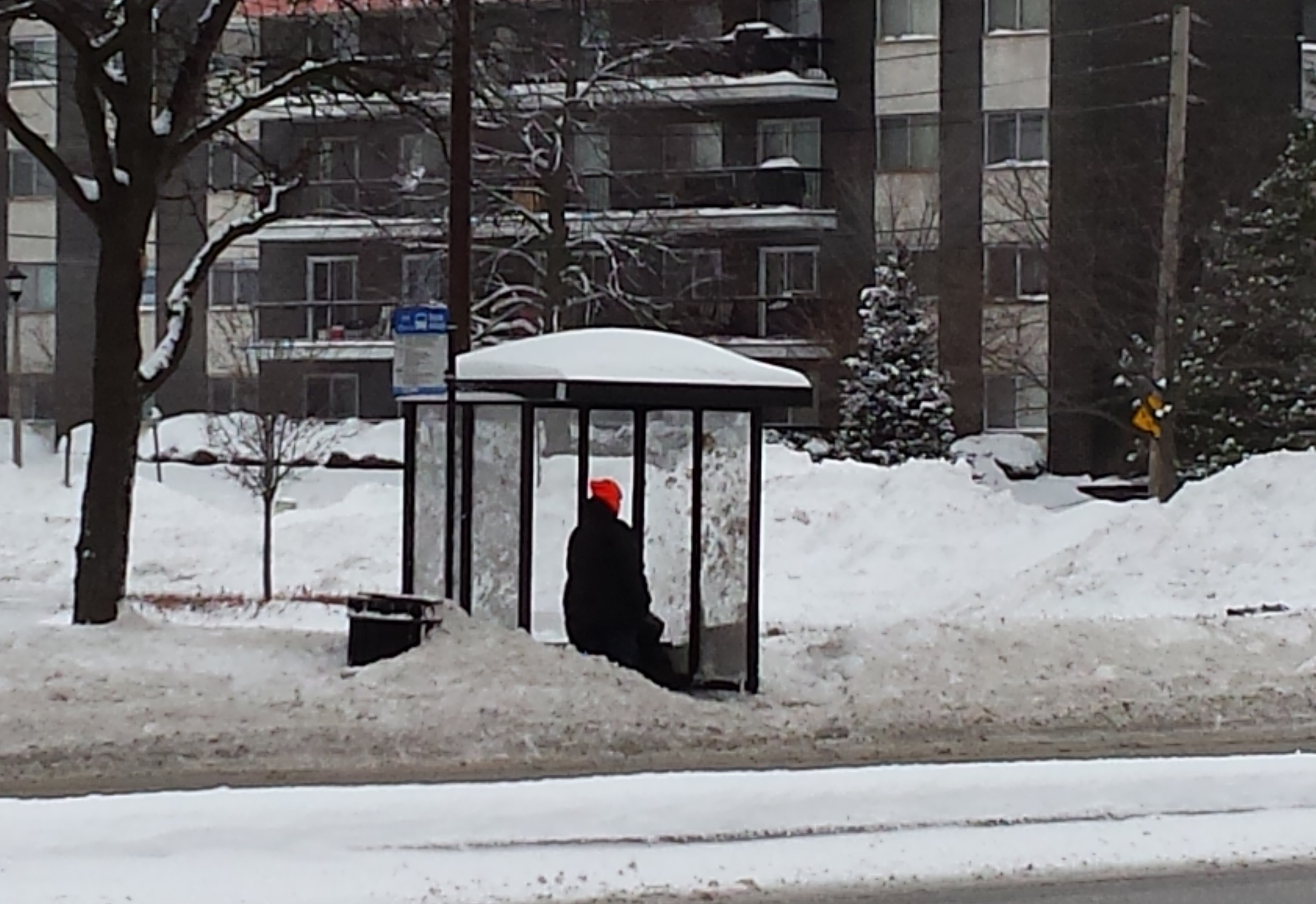The City of Chicago is fortunate to have both a good public transportation network (at least by U.S. standards) and regulations in place that encourage residents and merchants to keep the sidewalks clear for pedestrians during the winter months after a snowfall (although enforcement is spotty.) Both of these systems help people get around without a car during the winter months.
However, in the suburbs there’s less access to mass transit, as well as fewer regulations and less enforcement of snow removal from sidewalks. This is because many of the suburbs are less densely populated and more sprawling, so more people own cars and there’s less walking and transit ridership. Understandably, the focus of suburban snow plowing is to keep the streets clear, especially the large arterial roads, in order to keep private car and truck traffic moving in addition to buses and emergency vehicles.
But suburbs, especially those served by CTA and Pace routes, should also make sure that the sidewalks are clear for pedestrians and straphangers. In most municipalities, it’s the responsibility of the property owners to make sure that the sidewalks are clear in front of their properties. In some suburban cities with larger public works budgets, the public works crew plows some of the sidewalks along major streets in business districts.
But in many places, there is a patchwork of clear sidewalks and impassible ones due to who owns the property and how invested they are in making sure the sidewalks their home, storefront, or parking lot. If the sidewalks aren’t well shoveled on quiet residential streets, pedestrian might walk in the road, but that’s not an option on main streets. In some cases, the snow plowed from the road and parking lots ends up on sidewalks forcing pedestrians to briefly detour into the street. Many towns have websites or hotlines where residents can report un-shoveled sidewalks, but in general there's no clear data on how many reports are received and how many result in corrective action. The penalties for scofflaws differ depending on the local rules.
The lack of sidewalk shoveling can also affect access to public transportation, especially bus service. If people can’t safely walk to the bus stop or have to wait in the street because the sidewalk at the bus stop is not accessible, this affects people’s willingness to use public transit during the winter months. While driving during the winter can include the hassle of warming up and scraping off a snow-covered car, it does have the advantage of you directly from Point A to Point B without having to wait outside in the cold. So when it’s not easy to walk to a bus stop due to un-shoveled sidewalks, that’s another reason for people to avoid using transit during the winter months. The lack of proper snow clearance can also affect boarding and exiting buses safely because people may have to climb over snow banks along the edge of the sidewalk to get on or off the bus, and may have to wait in the street, which obviously isn’t safe.
But that’s not to say that all of Chicago’s suburbs are a wintery wasteland for pedestrians and transit users during the colder months. Evanston has a very sensible approach to maintaining the public way. After issuing warnings to those who don’t shovel, the city hires a contractor to do the work. As of 2016, the offender was invoiced an average of $190 for the service, which became a $230 property lien if the bill wasn’t paid. Other suburbs like Forest Park, Wilmette, Winnetka, and Glencoe clear all public sidewalks for residents.





